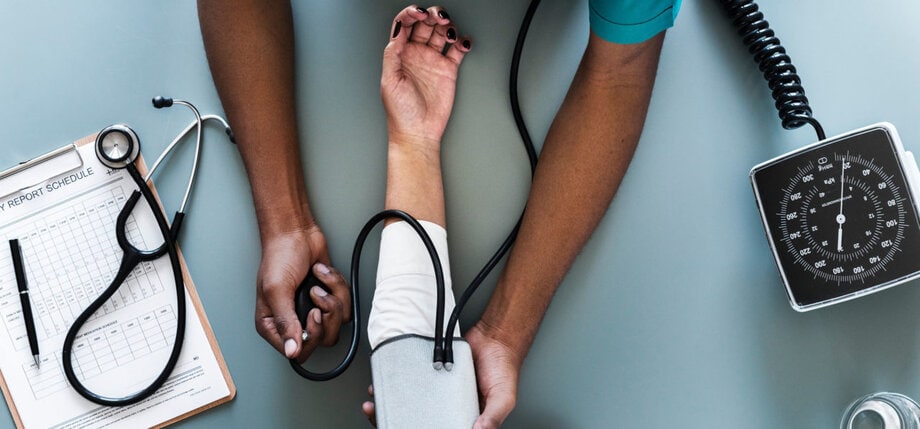What Are The Risk Factors For Hypertension?

Hypertension, also known as high blood pressure, is a prevalent and serious medical condition affecting a significant portion of the global population. Understanding the risk factors associated with hypertension is crucial for prevention and management strategies.
This article aims to explore the various risk factors contributing to the development of hypertension, highlighting their significance in both clinical and public health contexts. The risk factors can be categorized into several domains, including:
- Lifestyle choices
- Underlying medical conditions
- Demographic factors
- Stress and mental health
- Medication and drug use
- Lack of physical activity
- Poor sleep habits
- Environmental factors
By objectively examining these risk factors, individuals and healthcare professionals can better comprehend the multifaceted nature of hypertension and devise effective interventions. Ultimately, this knowledge can aid in reducing the burden of hypertension and its associated complications, enhancing overall health and well-being.
Key Takeaways
- High levels of air pollution, including particulate matter and nitrogen dioxide, increase the risk of hypertension.
- Certain occupations and occupational hazards are associated with an elevated risk of hypertension.
- Noise pollution, particularly chronic exposure to excessive noise, is linked to high blood pressure and disrupts blood pressure regulation.
- Socioeconomic factors such as poor housing conditions, limited access to green spaces, and lack of healthy food options contribute to the development of hypertension.
Lifestyle Choices
Multiple studies have shown that engaging in unhealthy lifestyle choices, such as consuming a high-sodium diet, being physically inactive, and indulging in excessive alcohol consumption, significantly increase the risk of developing hypertension.
Dietary habits play a crucial role in the development of hypertension. A diet high in sodium can lead to increased blood pressure levels, as excessive sodium intake disrupts the balance of fluids in the body and causes blood vessels to constrict.
Similarly, a sedentary lifestyle and lack of regular exercise routines contribute to the development of hypertension. Physical activity helps to regulate blood pressure by improving blood flow and strengthening the heart.
Therefore, individuals who adopt unhealthy dietary habits and fail to engage in regular exercise routines are at a higher risk of developing hypertension.
It is imperative to promote healthy lifestyle choices to reduce the burden of hypertension.
Underlying Medical Conditions
Several medical conditions have been identified as potential contributors to the development of high blood pressure. These underlying medical conditions can increase the risk of hypertension and may require specific diagnosis and treatment approaches.
One such condition is kidney disease, which can impair the kidneys’ ability to regulate blood pressure.
Another condition is sleep apnea, a sleep disorder where breathing repeatedly stops and starts, causing oxygen levels to drop and blood pressure to rise.
Additionally, hormonal disorders such as Cushing’s syndrome and thyroid disorders can also contribute to hypertension.
To accurately diagnose these conditions as risk factors for hypertension, physicians may utilize various tests, including blood tests, imaging studies, and sleep studies.
Treatment options for hypertension associated with these underlying medical conditions often involve managing the primary condition alongside medications to control blood pressure.
Demographic Factors
Demographic factors, such as age, ethnicity, and socioeconomic status, play a significant role in the prevalence and impact of high blood pressure. Social determinants, such as income, education, and occupation, influence an individual’s access to healthcare, quality of living conditions, and overall lifestyle choices. These factors can directly or indirectly contribute to the development of hypertension.
For example, individuals with lower socioeconomic status may have limited access to healthcare services, leading to undiagnosed or poorly managed hypertension. Age also plays a crucial role, as the risk of hypertension increases with advancing age. Additionally, certain ethnic groups, such as African Americans, have a higher prevalence of hypertension compared to other populations. Genetic predisposition also contributes to the risk of developing hypertension, as individuals with a family history of the condition are more likely to develop it themselves.
Stress and Mental Health
Stress and mental health have been identified as significant contributors to the development and management of high blood pressure, creating a turbulent emotional landscape that can impact an individual’s overall well-being.
The relationship between stress and hypertension is complex and bidirectional. Chronic stress can lead to an increase in blood pressure levels, potentially resulting in hypertension.
Furthermore, individuals with pre-existing mental health disorders, such as anxiety and depression, are more susceptible to developing high blood pressure. The impact of mental health on blood pressure can be attributed to various factors, including unhealthy coping mechanisms, such as smoking or excessive alcohol consumption, and physiological responses to stress.
Stress management techniques, such as relaxation exercises, mindfulness meditation, and regular physical activity, have shown promise in reducing blood pressure levels and improving overall mental well-being.
It is crucial to address stress and mental health as part of a comprehensive approach to preventing and managing hypertension.
Medication and Drug Use
The utilization of medication and drug use has profound implications for individuals with high blood pressure, as it can significantly impact their overall well-being and potentially exacerbate the negative effects of hypertension. Medications prescribed for hypertension may have side effects, which can range from mild to severe. Some commonly prescribed medications for hypertension include diuretics, beta-blockers, and ACE inhibitors. Diuretics can cause increased urination and electrolyte imbalances, while beta-blockers may lead to fatigue and dizziness. ACE inhibitors can result in a persistent cough and angioedema. It is crucial for individuals with hypertension to be aware of these potential side effects and report them to their healthcare provider. Additionally, recreational drug use, such as cocaine and amphetamines, can have detrimental effects on blood pressure, leading to further complications for individuals with hypertension. Therefore, it is essential for individuals with hypertension to be cautious about medication side effects and avoid recreational drug use.
| Medication | Side Effects |
|---|---|
| Diuretics | Increased urination, electrolyte imbalances |
| Beta-blockers | Fatigue, dizziness |
| ACE inhibitors | Persistent cough, angioedema |
Lack of Physical Activity
Insufficient physical activity has been shown to have detrimental effects on the overall health and well-being of individuals with high blood pressure, potentially exacerbating the negative consequences of hypertension. Engaging in regular exercise offers numerous benefits for individuals with hypertension, including improved cardiovascular health, increased muscle strength and flexibility, and enhanced mental well-being.
Moreover, an active lifestyle can help individuals maintain a healthy body weight, reduce stress levels, and improve sleep quality. Conversely, a sedentary lifestyle can have severe consequences for individuals with hypertension, such as increased risk of obesity, cardiovascular disease, and stroke. Additionally, lack of physical activity can contribute to the progression of hypertension and make it more difficult to manage through medication alone.
Therefore, incorporating regular exercise into the daily routine is crucial for individuals with high blood pressure to mitigate the negative effects of hypertension and promote overall health.
Poor Sleep Habits
Previous research has highlighted the detrimental effects of a sedentary lifestyle on blood pressure regulation. Expanding upon this notion, it is crucial to delve into the role of sleep habits in the development of hypertension. Sleep quality and patterns have emerged as significant risk factors for the onset of elevated blood pressure. Inadequate sleep duration, poor sleep efficiency, and irregular sleep patterns have been associated with higher blood pressure levels.
This relationship may be attributed to the disruption of physiological processes involved in blood pressure regulation, such as the sympathetic nervous system and the renin-angiotensin-aldosterone system. Moreover, poor sleep habits can lead to increased levels of stress, inflammation, and oxidative stress, all of which contribute to the development of hypertension.
Therefore, improving sleep quality and adopting healthy sleep patterns may serve as critical preventive measures against hypertension.
Environmental Factors
Expanding our understanding, environmental influences have been identified as significant contributors to the development of elevated blood pressure. These factors, such as air pollution and occupational hazards, can have a detrimental impact on an individual’s cardiovascular health.
- Air pollution: Studies have shown that exposure to high levels of air pollutants, such as particulate matter and nitrogen dioxide, is associated with an increased risk of hypertension. Fine particles can penetrate deep into the lungs and enter the bloodstream, causing inflammation and oxidative stress, which can lead to elevated blood pressure.
- Occupational hazards: Certain occupations, such as those involving noise, vibration, or exposure to chemicals, have been linked to an elevated risk of hypertension. These work-related factors can induce chronic stress, disrupt sleep patterns, and contribute to the development of hypertension over time.
- Noise pollution: Prolonged exposure to excessive noise levels has also been associated with high blood pressure. Noise can activate the body’s stress response, leading to increased heart rate and blood pressure. Chronic exposure to noise pollution, particularly during sleep, can disrupt the normal regulation of blood pressure and contribute to hypertension.
- Socioeconomic factors: Environmental factors, including poor housing conditions, lack of access to green spaces, and limited availability of healthy food options, are more prevalent in socioeconomically disadvantaged areas. These factors, collectively known as environmental justice issues, can contribute to the development of hypertension by creating chronic stress and limiting opportunities for physical activity and healthy lifestyle choices.
In conclusion, environmental factors, such as air pollution and occupational hazards, play a significant role in the development of hypertension. Understanding and addressing these influences are crucial in preventing and managing hypertension at both individual and population levels.
Frequently Asked Questions
Can genetics play a role in developing hypertension?
Genetics can indeed play a role in the development of hypertension. Research suggests that certain genes can contribute to an individual’s susceptibility to high blood pressure, highlighting the importance of genetic factors in this condition.
How does excessive alcohol consumption affect blood pressure?
Excessive alcohol consumption can significantly affect blood pressure, leading to hypertension. Research indicates that heavy drinking increases the risk of developing high blood pressure due to its impact on the cardiovascular system.
Does caffeine intake have an impact on hypertension?
Caffeine intake has been associated with a temporary increase in blood pressure, but the long-term effects on hypertension are inconclusive. Further research is needed to fully understand the relationship between caffeine and high blood pressure.
Are there any natural remedies that can help lower blood pressure?
Natural remedies, such as exercise, a healthy diet, and stress reduction techniques, have been shown to help lower blood pressure. These interventions can be effective in managing hypertension and reducing the risk of cardiovascular complications.
Occupational hazards and job-related stress can potentially increase the risk of hypertension. High-demand jobs, long working hours, and lack of work-life balance are factors that contribute to this increased risk.









